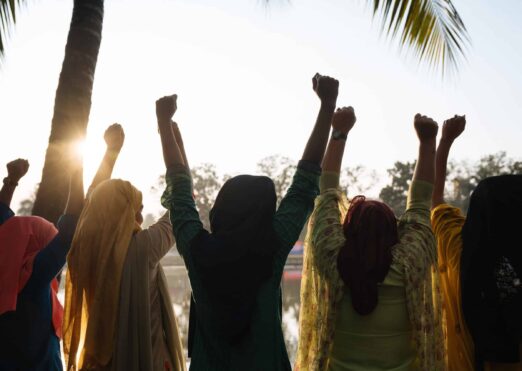Online sexual abuse reaches epidemic levels in Philippines, harrowing new report finds
April 26, 2024
Urgent action must be taken as children’s lives are destroyed by online sexual abuse and exploitation in the Philippines, Nicole Munns, our International Systemic Change Director, warns following two years of research with partners.
While technological advancements have revolutionised connectivity and access to the internet, the protection of vulnerable children online has failed to keep pace. The global COVID-19 pandemic has further exacerbated the situation, leading to unforeseen challenges in safeguarding children from online sexual abuse and exploitation. Within this landscape, the Philippines has emerged as a global hotspot for this horrendous crime.
Over the last two years, Justice and Care, with Dublin City University, and De La Salle University, Manila have been working with government, law enforcement and civil society, to better understand how this crime is happening in the Philippines, and to address the environment in which it operates and thrives. Critically, researchers spoke directly with convicted local OSAEC traffickers in the Philippines, amongst others.
One of the major findings of our new report is that OSAEC in the Philippines, including live streaming of abuse, has reached epidemic levels, sustained by global demand and a ‘cottage industry’ on the ground. Local ‘facilitators’, who traffic victims, pass on their knowledge to help community members set up businesses selling abuse to foreign consumers. The report also finds that many Western-owned financial institutions and tech companies are being used to facilitate OSAEC.
It is clear from the study that reducing re-traumatisation and secondary victimisation of children are critical steps that need to be taken. We must also urgently address the contagion effect, and strengthen the enabling environment of online platforms.
Another crucial recommendation in the study is widespread education and a community awareness raising plan within the Philippines to help people understand the harm caused by OSAEC and to dispel beliefs and fallacies that otherwise enable and sustain the crime.
Greater global regulation of the online platforms – including online dating sites and adult webcam services – is desperately needed, as are tougher investigations, more prosecutions and harsher sentences for the foreign customers who create the demand.
Finally, we are seeking an urgent step up of regulation, detection and suspicious transaction reporting by the financial institutions which indirectly facilitate and profit from OSAEC.
Children’s lives are being destroyed by these horrendous crimes, as exploiters continue to financially benefit from their stolen childhoods. This study should serve as a wake-up call that drives the global community into action.
Working in partnership, we must protect our young and eradicate the scourge of online sexual abuse and exploitation that has been allowed to flourish. The research is complete, now it’s time to focus on solutions.
Read the new groundbreaking report – Facilitation of Online Sexual Abuse and Exploitation of Children (OSAEC) in the Philippines – here.


